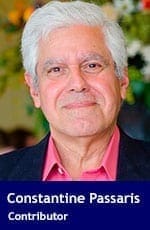 In the wake of the United Kingdom’s Brexit referendum, Canada needs to immediately rethink its economic strategy for reaching out to Europe.
In the wake of the United Kingdom’s Brexit referendum, Canada needs to immediately rethink its economic strategy for reaching out to Europe.
France, a strong Canadian partner, remains firmly embedded in the European Union and will continue to serve as our economic beachhead for the francophone countries of the EU.
However, since U.K. citizens voted 52 percent in favour of leaving the European Union, we will need to replace Britain with another high-profile economic performer inside the EU.
We should embrace building new bridges with Europe’s economic powerhouse – Germany.
Germany is Europe’s largest economy and its second most populous nation (after Russia). It is a key member of Europe’s economic, political and defence organizations.
European power struggles immersed Germany in two devastating world wars in the first half of the 20th century. The second left the country occupied by the victorious Allied powers of the U.S., U.K., France and the Soviet Union in 1945. Its history is not without its controversial moments and human rights blemishes.
With the advent of the Cold War, two German states were formed in 1949: the western Federal Republic of Germany (FRG) and the eastern German Democratic Republic (GDR). The democratic FRG embedded itself in key western economic and security organizations, the European Economic Community, the predecessor of the EU, and NATO. On the other hand, the communist GDR was on the front line of the Soviet-led Warsaw Pact.
During the Cold War, Berlin was where two world views met at a dead end. Indeed, the Berlin Wall was ground zero for the clash between capitalism and communism. During the Soviet blockade of Berlin, German humour coined the saying “Berlin has become an island in the Red Sea.”
The contemporary political landscape in Germany is eons away from the height of the Cold War, when U.S. President John F. Kennedy travelled to Berlin to proclaim “Ich bin ein Berliner,” which translates “I am a Berliner.”
The decline of the U.S.S.R. and the end of the Cold War allowed for German unification in 1990. Since then, Germany has expended considerable funds to bring Eastern productivity and wages up to western standards. In January 1999, Germany and 10 other EU countries introduced a common European exchange currency, the euro.
Now, the German political process is remarkably transparent and accountable. This is especially evident in the legislative process, where public policy is debated at all levels with public oversight. The legislative buildings even have a glass front so passersby can see parliamentary committees in action.
As the economic powerhouse of Europe, Germany has assumed a role as a spokesperson for the European Union. It serves as a political fixer and arbitrator for European hot-button political situations, economic challenges and continental conflicts.
The German economy – the fifth largest economy in the world – is a leading exporter of machinery, vehicles, chemicals, computer and electronic products, electrical equipment, pharmaceuticals, metals, transport equipment, foodstuffs, textiles, rubber and plastic products, and household equipment. It imports data processing equipment, chemicals, oil and gas, metals, electric equipment, pharmaceuticals, foodstuffs and agricultural products.
Its industrial sector accounts for 30.2 percent of gross domestic product. The German economy is among the world’s largest and most technologically advanced producer of iron, steel, coal, cement, chemicals, machinery, vehicles, machine tools, electronics, automobiles, food and beverages, shipbuilding and textiles. It benefits from a highly-skilled labour force with high productivity.
Canada and Germany have much in common on the economic, social and political landscapes. A large number of Canadians are of German heritage. Their fluency in the language and their intimate knowledge of how to conduct business in that country are economic assets.
Now is the time to build an economic bridge to Germany that will serve as our new economic beachhead to the EU.
Dr. Constantine Passaris is a professor of Economics at the University of New Brunswick, a national research affiliate of the Prentice Institute for Global Economy and Population at the University of Lethbridge and an Onassis Foundation Fellow (Greece).
Constantine is a Troy Media contributor. Why aren’t you?
The views, opinions and positions expressed by columnists and contributors are the author’s alone. They do not inherently or expressly reflect the views, opinions and/or positions of our publication.


